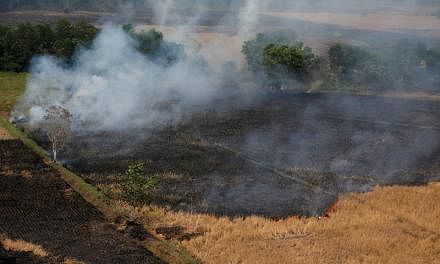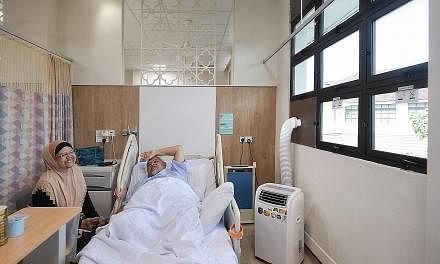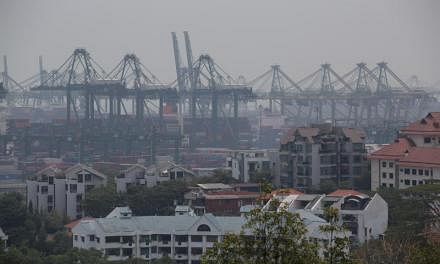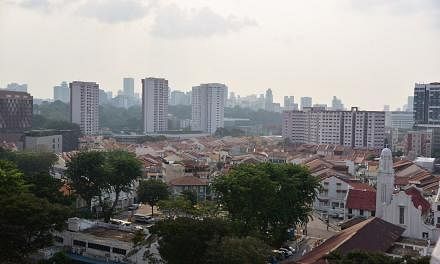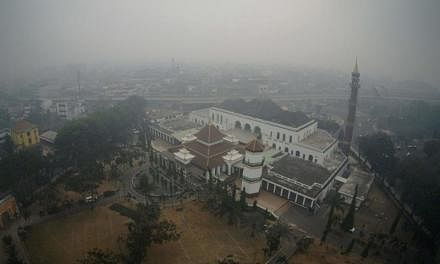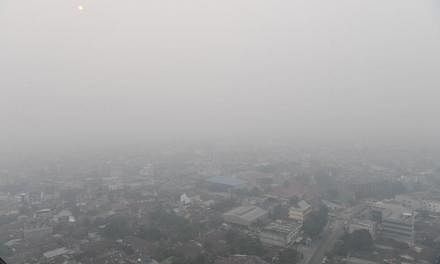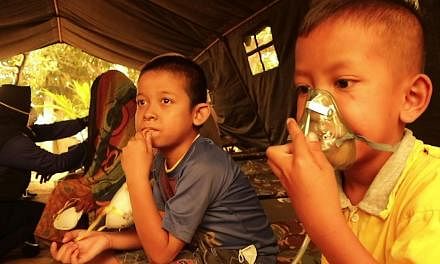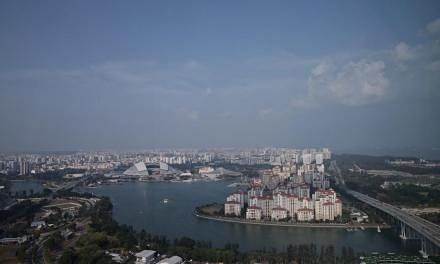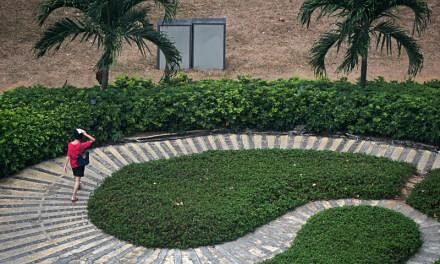JAKARTA - Indonesia is deploying an additional 5,600 officers to fire-prone regions in Sumatra and Kalimantan, bringing the total number to more than 14,000, as the country fights raging fires and smoke haze.
Officials are also exploring two new ways to overcome challenges to curb the spread of the fires that have spawned choking haze that has traveled across borders to Malaysia and Singapore.
One new approach, being readied, is to rely on widely-used chemical compound Calcium Oxide to help form clouds potential to be seeded to induce rain. Cloud seeding operations have been on-and-off due to an absence of adequate dense clouds.
The second new approach would be to use drones to get real-time information on the location of emerging hot spots. The current system has at least a six hours' time lag.
"We are doing all efforts. Ground efforts… everything. I have ordered an additional 5,600 troops," President Joko Widodo said on Tuesday (Sept 17) in Pekanbaru, Riau, before he visited several hot spots in the province.
He has ordered a crackdown against individuals and companies responsible for the forest fires, after seeing for himself and walking through burnt trees in Riau province's Pelalawan regency, among the worst affected.
"If we see the area affected. It is huge. It is organised," Mr Joko said, adding that national police chief general Tito Karnavian would disclose details on the plan to prosecute all the responsible parties.
He called on the local elected leaders and officials assigned in the field to do their part in tackling the fire before it spreads and gets difficult to control. Indonesians directly elect their respective provincial governors, regents and village heads every five years. The President cannot sack any of these elected officials even if they underperformed.
"Let us give a reminder that prevention -- by village heads, sub-regents, regents, Babinsa (military intelligence officers assigned to villages), local police heads, local military heads -- are top priorities."
Indonesia's 34 provinces are made up of hundreds of regencies, while each regency is made up of sub-regencies.
Mr Joko added: "Prevention is more effective. Prevention does not require a lot of costs. But if (fires) have developed to the stage we are seeing, it would require extraordinary work."
The fire-fighters are divided into ground and air teams. Fires in a remote location and in a location far from any natural source of water have been doused using water bombings and aircraft carrying NaCl salt powder to be spread over dense clouds, an operations called cloud seeding.
Officials have however said cloud-seeding operations have been hampered as the teams have had a tough time finding dense clouds to seed to induce rain.
These clouds have not been properly formed because thick haze has effectively blocked sunshine, thus disrupting the water cycle process.
Acting spokesman Dr Agus Wibowo for Indonesia's disaster management agency (BNPB) said in a statement on Tuesday that his agency has teamed up with the Agency for the Assessment and Application of Technology (BPPT) to solve the lack of dense clouds.
They are readying the widely-used chemical compound calcium oxide, commonly known as quicklime, to be spread over the haze to clear the sky and allow the sunshine to come in, to kickstart the water cycle process, Dr Agus said.
BPPT has readied 40 tonnes of calcium oxide at an air force airport in East Jakarta to be transported to Sumatra and Kalimantan. Three aircraft, which have a total carrying capacity of 8 tonnes, will be used to spread this chemical compound above parts of Sumatra and Kalimantan raged by fires.
Indonesia's armed forces commander chief marshal Hadi Tjahjanto, who was in Mr Joko's entourage visiting the hot spots on Tuesday, said he wanted fire fighters on the ground to get information on emerging hot spots faster.
"Fire-fighters are not getting real-time information on new hot spots, as such information (a satellite map of hotspots) is only updated every six hours. We reckoned six hours would give much room for the fire to spread," chief marshal Hadi said, adding that he proposed to the President on Tuesday to deploy drones.
"Round-the-clock, even late at night, if we have a real-time information, we can communicate to some of the 120 (fire-fighting) posts and have them quickly go to the fire locations. We can see where the biggest fires are from data sent by our drones," Mr Hadi explained.


